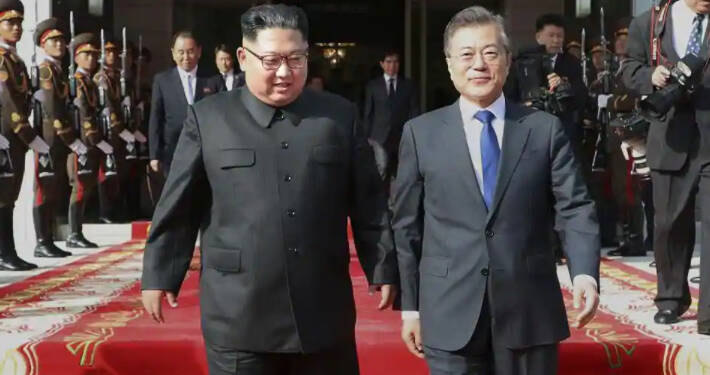Korean unification has been an agenda for both North Korea and South Korea since the end of the Korean war. The two countries have tried different ways for a very long time to complete the unification based on their version of the state. However, the South was able to industrialise and North Korea, given the failed socialist experiment was not.
For the longest time, the incentive for unification has been ideological and historical, but now South Korea has an economic incentive for unification too. The South Koreans are faced with major socio-economic problems. The state was industrialised at a breakneck speed while the society was not able to adjust to things changing at such a pace. Several issues have amalgamated into a situation where the cost of labour in South Korea has become too high and it is affecting the South Korean economy.
While the North Korean population has been oblivious of any real development, it has created a large pool of low cost and untapped labour force. This exactly compliments the current South Korean deficiency. It also solves the problem of the societal resistance to the solution of the problem by an influx of migrant labour force which is being experimented in Japan.
South Korea is an ageing society, which needs to allocate a big chunk of its resources for taking care of the older generation. With dropping fertility rates, the possibility of it gaining a labour force to sustain its economy is zero. The number of expected infants per South Korean woman fell to 0.84 in 2020, dropping further from the country’s previous record low of 0.92 a year earlier, the official annual reading from Statistics Korea showed.
In addition to this, South Korea has been historically and till very recently socio-culturally and ethnically highly homogenous society. This has led to it not being receptive to large scale immigration into the country. Thus, a union with North Korea and gaining the large untapped labour force can come in handy, and them being culturally and ethnically Koreans makes this prospect all the more lucrative.
The current government of Moon Jae-in represents the progressives in Korean politics. The progressives have long called for increased engagement with the North Koreans under their signature Sunshine Policy. It makes them comparatively more inclined to a negotiated union than their conservatives counterparts. With the country facing an acute socio-political crisis which is now spilling over into the South Korean economy, Seoul will be more inclined to reach a negotiated union with its Northern estranged brother and tap the large and relatively cheap labour for breaking through the plateauing economy.
